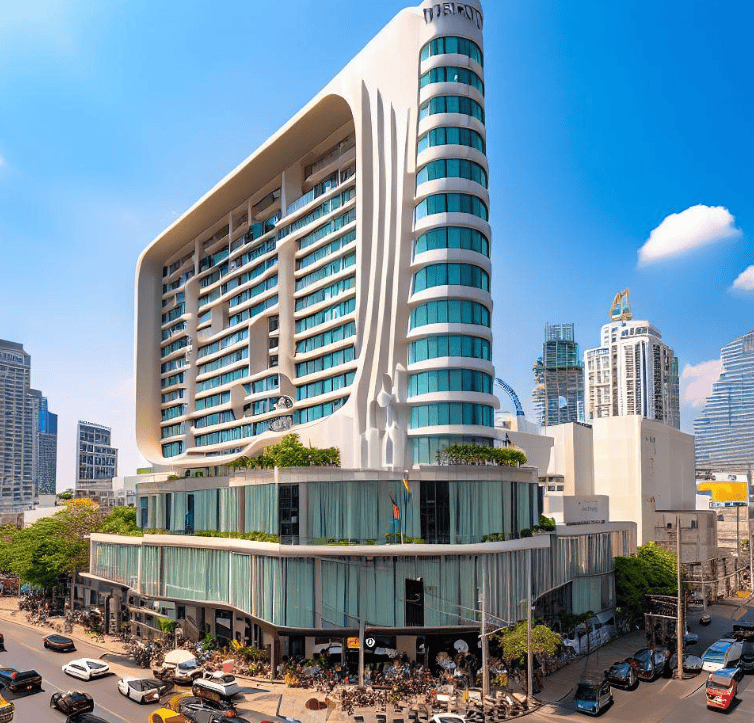I have been to Taiwan more than I did any other country.
Personally, there is no best time to visit Taiwan. 🇹🇼 You can visit any time of the year and still be blown away by its heritage and modernized beauty.
This is largely because this country has something for everyone every season, from stunning natural landscapes to vibrant festivals, and immersive cultural activities.
It also has modern shopping malls (Taipei tops the chart) that only a few countries can hope to match in terms of sheer size and variety.
It is truly a captivating island that offers a wealth of experiences year-round.
No matter what time of the year you visit, plan your trip accordingly to make the most of your time on the island.
In this guide, I will show you what to expect when you visit Taiwan ( across different seasons) and provide essential tips and insights to help you plan a memorable trip.
- Understanding Taiwan's Climate
- Spring in Taiwan: Blooming Landscapes and Festivals
- Summer in Taiwan: Beaches and Water Activities
- Autumn in Taiwan: Golden Foliage and Outdoor Adventures
- Winter in Taiwan: Hot Springs and Cultural Celebrations
- Considerations for Peak Travel Seasons
- Off-Peak Travel: Benefits and Things to Note
- Festivals and Events in Taiwan: Year-Round Celebrations
- Final Note
[su_highlight background=”#fc6e37″ color=”#ffffff”]Main Highlights[/su_highlight]
- Taiwan has a subtropical climate, characterized by hot and humid summers and mild winters.
- Spring is a wonderful time to visit Taiwan for blooming landscapes and cultural festivals, while summer offers excellent beach and water activities opportunities.
- Autumn in Taiwan offers golden foliage and outdoor adventures, and winter is perfect for hot springs and cultural celebrations.
- Consider peak travel seasons, such as Chinese New Year and summer vacation, when planning your trip.
- Traveling during off-peak seasons offers advantages such as fewer crowds and lower prices, but be aware of reduced operating hours for some attractions.
Understanding Taiwan’s Climate
Before planning your trip to Taiwan, it’s essential to understand Taiwan’s climate.
Taiwan has a subtropical climate, characterized by hot and humid summers and milder winters.
The island also experiences monsoons, which might affect your travel plans (if you plan to visit the beaches during this period).
Hence, avoid monsoon periods if you never like bring your brolly around like me. 😁
Summer temperatures can reach up to 95°F (35°C) in the lowlands, with high humidity.
In contrast, winters can see temperatures as low as 50°F (10°C), with occasional frost or snowfall in the mountains.
Spring and autumn have milder temperatures, making them excellent times to visit for those who prefer a more temperate climate.
To ensure comfortable travel, we recommend packing lightweight, breathable clothing for the hot summer months and layers for the winter.
If you are an outdoor hiking fanatic, don’t forget to bring sturdy walking shoes for outdoor activities like forest and trail hiking. Remember to put insect repellent and sunscreen among other essentials, on your must-bring list.
[su_note note_color=”#ffffff”]📌 Taiwan’s weather can be unpredictable. Keep that in mind when planning a trip there.[/su_note]
Typhoons affected my travel plans when I visited Taipei two years ago in July. Always check the weather forecast and monitor local news sources for typhoon alerts.
| Season | Temperature Range | Weather |
|---|---|---|
| Spring | 59-77°F (15-25°C) | Blooming flowers and occasional rainfall |
| Summer | 77-95°F (25-35°C) | Hot and humid, with occasional typhoons |
| Autumn | 64-77°F (18-25°C) | Mild temperatures and golden foliage |
| Winter | 50-68°F (10-20°C) | Cooler temperatures and occasional rain |
Spring in Taiwan: Blooming Landscapes and Festivals
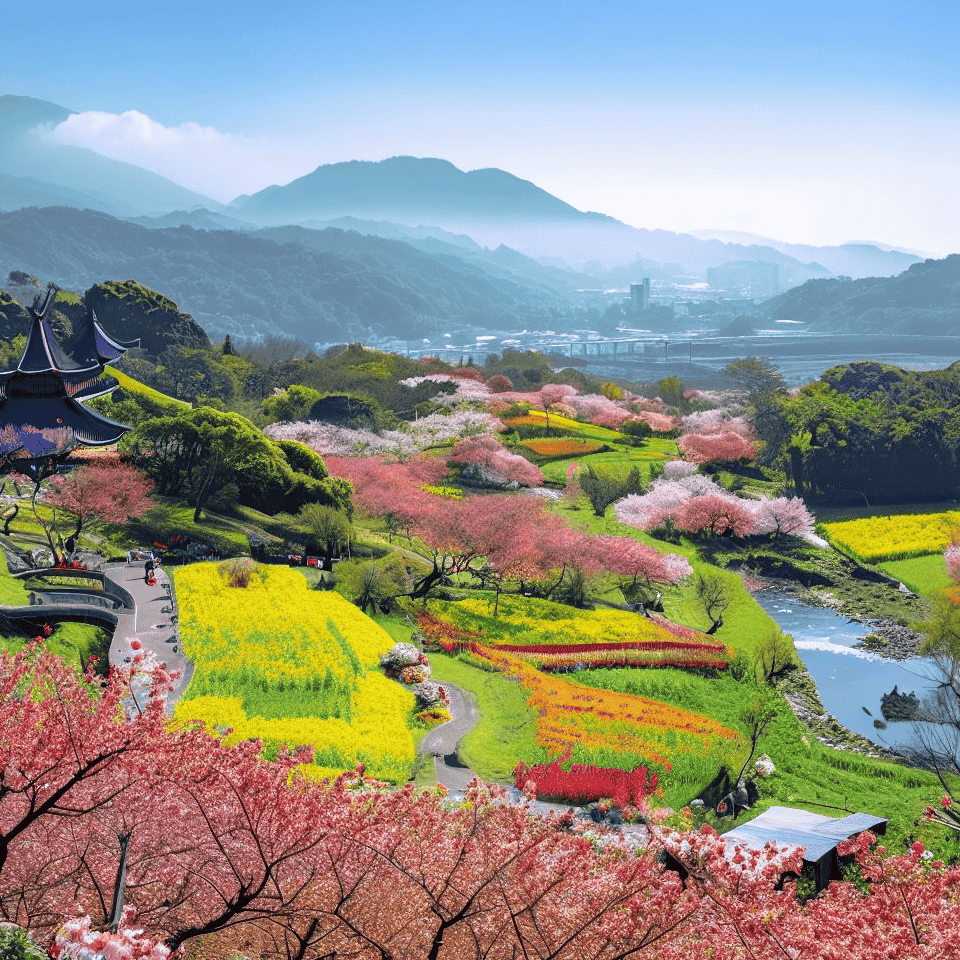
Spring is a fantastic time to visit Taiwan, with the island’s landscapes bursting with blooming flowers.
You will not want to miss the enchanting cherry blossom trees that come alive during this season.
The Taiwanese also celebrate various festivals, making Spring a time of vibrant cultural experiences.
The Lantern Festival is one such festival celebrated on the 15th day of the first lunar month. During this event, the streets come alive with colorful lanterns, with some even having riddles written on them.
Join in the fun and try your luck at solving the riddles with the locals.
If you’re a fan of traditional Taiwanese opera (me too 😍), you’ll also be pleased to know that the Yellow Snake Ghost Festival takes place during springtime.
It’s an incredible opportunity to witness the various religious ceremonies and see the performers donning vibrant costumes and makeup.
Remember to add these events to your itinerary and experience Spring in Taiwan like a local.
Summer in Taiwan: Beaches and Water Activities
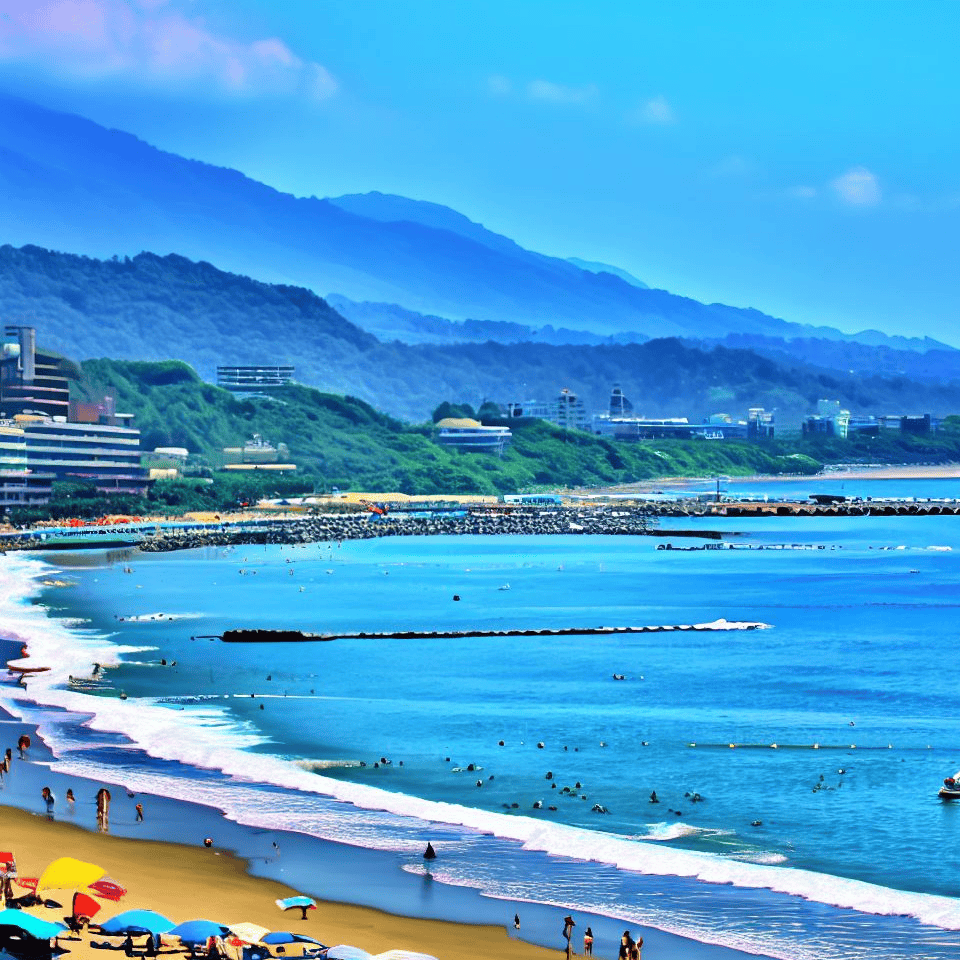 If you’re looking for a beach getaway, Taiwan offers numerous options for fun in the sun.
If you’re looking for a beach getaway, Taiwan offers numerous options for fun in the sun.
The beaches in Kenting National Park are among the most popular destinations for summer travelers, with crystal-clear waters and white sand.
If you’re interested in water activities like surfing or snorkeling, head to Fulong Beach, known for its big waves and coral reefs.
Other popular beaches include Baishawan Beach, located just north of Taipei, and Qixingtan Beach, nestled near the stunning Taroko Gorge.
However, it’s important to note that summer is also typhoon season in Taiwan, which can affect travel plans.
Stay updated on weather conditions and follow any advisories or warnings issued by local authorities.
Top beaches in Taiwan
| Beach Name | Location | Features and Activities |
|---|---|---|
| Kenting Beach | Kenting National Park | Golden sand, clear blue waters, snorkeling, surfing |
| Fulong Beach | New Taipei City | Long stretch of golden sand, sunbathing, water sports |
| Baishawan Beach | New Taipei City | Pristine white sand, crystal-clear waters, swimming |
| Dongshi Beach | Taichung City | Tranquil atmosphere, picturesque surroundings |
| Jibei Island Beach | Penghu County | Stunning coral reefs, turquoise waters, snorkeling |
| Sansiantai Beach | Taitung County | Unique rock formations, scenic coastal views |
| White Sand Beach | New Taipei City | Soft white sand, calm waters, swimming |
| Lover’s Bay Beach | Pingtung County | Secluded coves, romantic atmosphere, nature exploration |
| Chishingtan Beach | Hualien County | Rugged coastline, Pacific Ocean views, photography |
| Nanwan Beach | Kenting National Park | Beautiful scenery, lively atmosphere, swimming, surfing |
Water Activities in Taiwan
In addition to beaches, Taiwan offers a variety of water activities for adventure seekers. Head to Sun Moon Lake for kayaking or stand-up paddleboarding.
If you’re looking for something more thrilling, try canyoning or white-water rafting in Taiwan’s central mountains’ lush and scenic rivers.
For a more relaxed experience, try taking a dip in any of Taiwan’s hot springs.
They are renowned for their therapeutic benefits and can be found scattered throughout the island.
Autumn in Taiwan: Golden Foliage and Outdoor Adventures
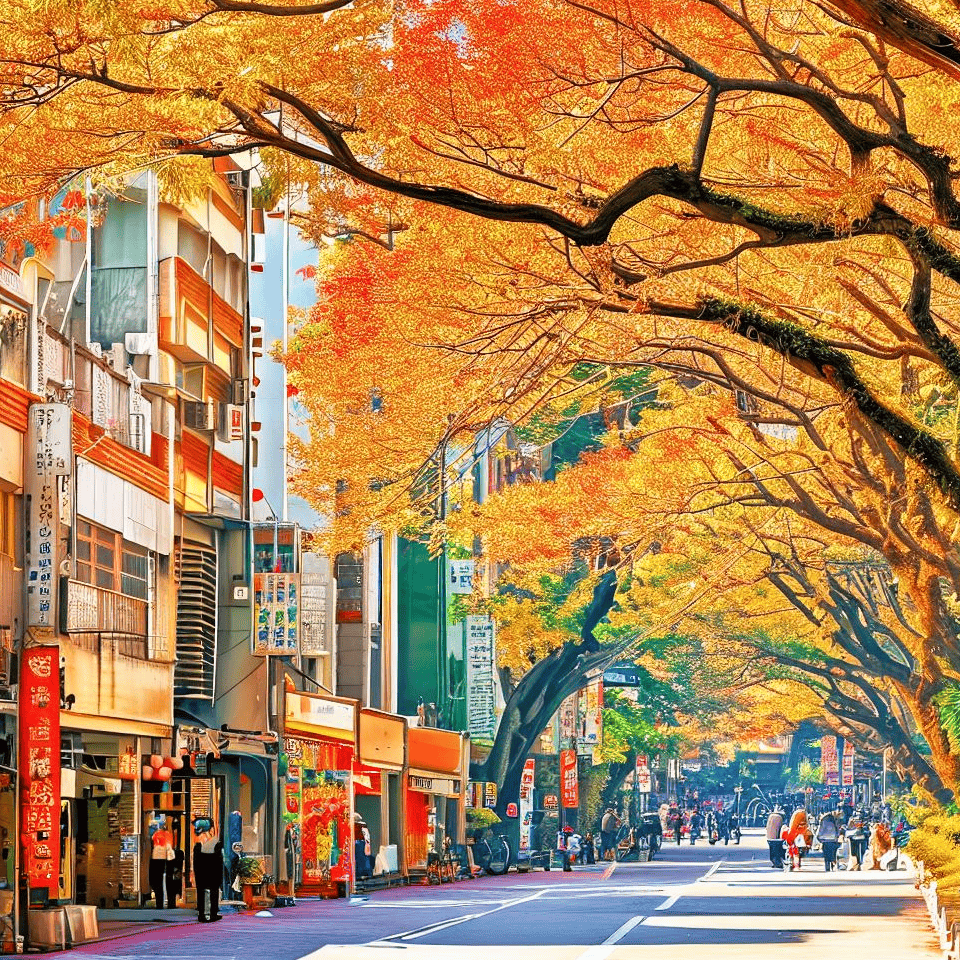
Autumn in Taiwan is a magical time when the island transforms into a colorful wonderland.
The weather is cooler and more comfortable, making it ideal for outdoor activities.
I find witnessing the golden foliage the most breathtaking experience during autumn in Taiwan.
Places like Alishan and Yangmingshan National Park are perfect for enjoying the autumn leaves.
Take a hike through these stunning landscapes and immerse yourself in the beauty of nature.
Besides the foliage, autumn in Taiwan is also an excellent time for outdoor adventures such as hiking and biking.
The cooler temperatures make exploring the island’s scenic routes and trails easier. If you’re feeling adventurous, consider hiking in Taroko Gorge, Taiwan’s version of the Grand Canyon.
Whether you’re a nature lover or an adventure seeker, autumn in Taiwan offers something for everyone.
Be sure to bring comfortable shoes, warm clothes, and a camera to capture the stunning scenery.
Winter in Taiwan: Hot Springs and Cultural Celebrations
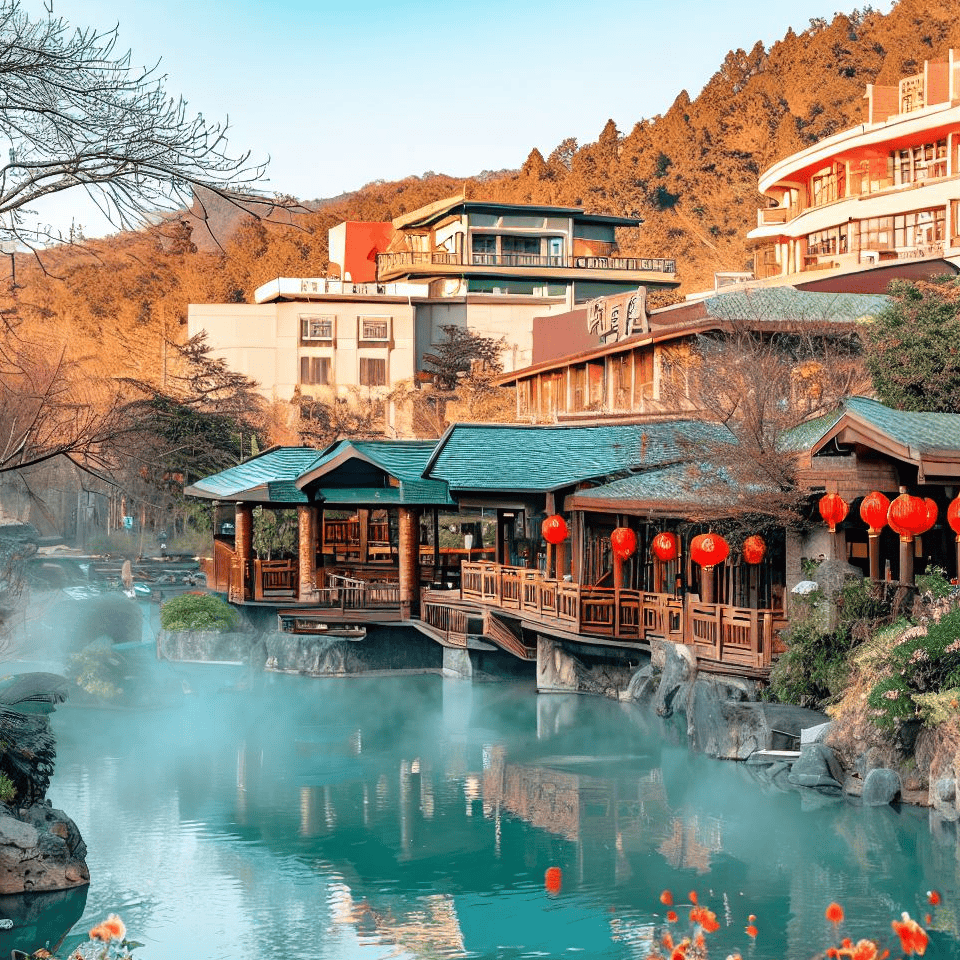
Winter in Taiwan brings cooler temperatures, making it an ideal time to enjoy the island’s hot springs.
Taiwan has a plethora of hot springs resorts, providing a relaxing and rejuvenating experience.
Beitou Hot Springs, located near Taipei is one of the most popular hot springs.
The area is surrounded by lush greenery and boasts various outdoor hot spring pools.
Another popular option is Wulai Hot Springs, located in the scenic mountains south of Taipei. Over there, you can enjoy hot spring baths with stunning forest and river views.
During the winter months, Taiwan also celebrates the Lunar New Year, one of the most significant cultural celebrations in the country.
You can witness traditional customs like the dragon and lion dances or try delicious New Year snacks like rice cakes and red bean soup.
You can also witness the mesmerizing Lantern Festival, which takes place on the 15th day of the Lunar New Year.
The sky will lit up with colorful lantern displays, creating a breathtaking sight.
Winter is also a great time to explore Taiwan’s museums and indoor attractions, such as the National Palace Museum and Taipei 101 Observatory.
As the weather is cooler, walking around and exploring these places is comfortable without feeling exhausted.
Overall, winter in Taiwan offers a unique cultural experience, relaxing hot springs, and plenty of indoor attractions to explore.
Considerations for Peak Travel Seasons
If you plan on visiting Taiwan during peak travel seasons, below are a few things to be mindful of.
- Chinese New Year, which usually falls in late January or early February, is one of the busiest times of the year. Many Taiwanese travel home to be with their families, which can lead to crowded transportation and popular attractions.
- Summer vacation, which runs from late June to early September, is also a popular time for travel. During this time, beaches and mountains are packed with tourists.
- If you decide to travel during these peak seasons, booking your accommodations and transportation in advance is recommended. Prices for hotels and flights may also be higher during these times, so keep that in mind when budgeting for your trip.
- Typhoons can hit Taiwan from July to September, which might affect your travel plans. Be sure to check the weather forecast regularly and stay updated on any travel advisories.
Despite these challenges, traveling to Taiwan during peak travel seasons can be an exciting and memorable experience.
Off-Peak Travel: Benefits and Things to Note
If you’re flexible with your travel dates, consider visiting Taiwan during the off-peak seasons.
This can offer numerous benefits and perks.
- Lower Prices: During off-peak season, you can often find cheaper flights, accommodations, and tours. This means you can save money without sacrificing quality, and can potentially extend your trip with the extra savings.
- Fewer Crowds: Popular attractions will be less crowded during the off-peak season, hence you can enjoy a more personalized experience. This means shorter queues, easier access to popular spots, and the opportunity to immerse yourself in local culture without the crowds.
- Better Availability: With fewer travelers around, you’ll likely have more availability when it comes to booking accommodations and activities. you will have more flexibility in your plans and avoid the fear of missing out on a must-see spot.
However, it’s important to note that some attractions and businesses may have reduced operating hours during off-peak seasons.
Additionally, certain outdoor activities may not be available due to weather conditions. With careful planning and research, however, you can ensure an enjoyable and unforgettable trip during the off-peak season.
Festivals and Events in Taiwan: Year-Round Celebrations
Taiwan is known for its vibrant festivals and events that take place throughout the year.
No matter when you plan your trip, there’s always exciting happenings.
Here are some of the many events and festivals you can experience, the Lantern Festival being my favorite. 😁
The Lunar New Year
Celebrated in late January or early February, the Lunar New Year is one of Taiwan’s most significant holidays. You can expect to witness dragon and lion dances, fireworks, and lantern displays.
The Lantern Festival
On the 15th day of the Lunar New Year, the Lantern Festival takes place.
Thousands of lanterns are released into the sky, creating a breathtaking view that you will remember for a long time.
The Dragon Boat Festival
The Dragon Boat Festival celebrated on the fifth day of the fifth lunar month, features iconic dragon boat races in rivers and coastal areas, accompanied by cheering crowds.
It also includes customs such as eating sticky rice dumplings (zongzi), paying homage to the poet Qu Yuan, and observing various folk beliefs aimed at warding off evil spirits and receiving good fortune.
The Mid-Autumn Festival
Also known as the Moon Festival, this event takes place in September or October.
Taiwan comes alive with colorful lantern displays, mooncakes, and live performances.
These are just a few of the many festivals and events happening in Taiwan.
Be sure to check the calendar to see if any of them align with your travel plans.
Final Note
Whether you’re a nature lover, a food enthusiast, or a cultural explorer, Taiwan offers a wealth of experiences and destinations throughout the year.
Always plan your trip and consider peak travel seasons, transportation options, and visa requirements. Additionally, embrace Taiwanese culture and customs by respecting local traditions and engaging with locals.
Now you are ready and prepared for an unforgettable adventure in Taiwan. 🛫

Amelia Anderson is an environmentally conscious world explorer who has mastered the art of sustainable travel. Her passion for sustainability has taken her to remote corners of the Earth, where she thrives on conservation projects and spreading awareness about our planet’s beauty on a budget. With a degree in environmental science, Amelia is dedicated to making a positive impact through her cost-effective and eco-friendly adventures.
When she’s not advocating for a greener future, you can either find her penning down her latest travel adventures in a nearby cafe or catching up with friends online from around the world while keeping her travels budget-friendly.
